Enrichment
Fine Arts/Makers Philosophy
Creativity Needs Room to Grow
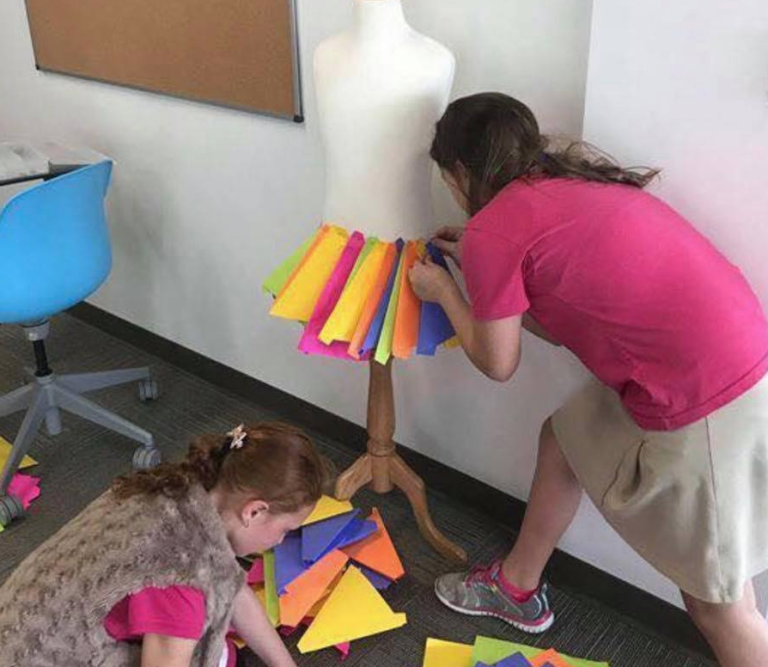
- Student’s learn the elements of art, including color, form, line, shape, texture and value.
- Art theories and artist studies are explored.
- Our school’s innovation hubs allow students to work with various art mediums, recyclables, wood working tools, sewing and fabric, and technology. Tool safety, techniques and the design thinking process are core to our Makers philosophy.
- Our art/makers teacher coordinates with C-PBL teachers to integrate student capstone projects within the innovation hubs, as model making is an aspect of project-work.
Music, Voice, Piano, and Theater
Music is the Strongest Form of Magic
- Students explore music theory, learning the elements of music, including rhythm, pitch, dynamics, form, timbre, and texture.
- Famous composers and contemporary music genres are explored.
- Students learn the piano and engage in voice lessons.
- Our music teacher coordinates with C-PBL teachers to integrate relevant cultural and time-period music within lessons.
- Theater is also offered in combination with our music program, allowing for the opportunity of scripting, writing, and performing school musicals.
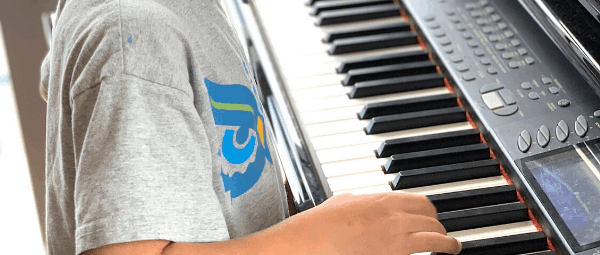
Physical Education, Soccer, Martial Arts, and Dance
The Body Achieves What the Mind Believes

- In preparation for competitive sports, students engage in the eight elements of physical education. This includes cardiovascular endurance, local muscle endurance, strength, strength endurance, power, flexibility, balance and agility.
- We also focus on the mind body connection, through yoga and meditation, learning self-regulation skills.
- Students engage in soccer skills and the martial arts through weekly enrichment, with partner organizations.
Foreign Language
Language is the Instrument of Culture
- Students learn Spanish, through the 6 elements of language learning. This includes vocabulary, speaking, listening, grammar, reading, and writing.
- Through a project-approach, our language teacher explores Spanish-speaking countries, where students explore cultural elements, including language, cuisine, music, and other customs.
- Students also have an opportunity to explore their own cultures, through an in-depth project, that culminates in a heritage luncheon.
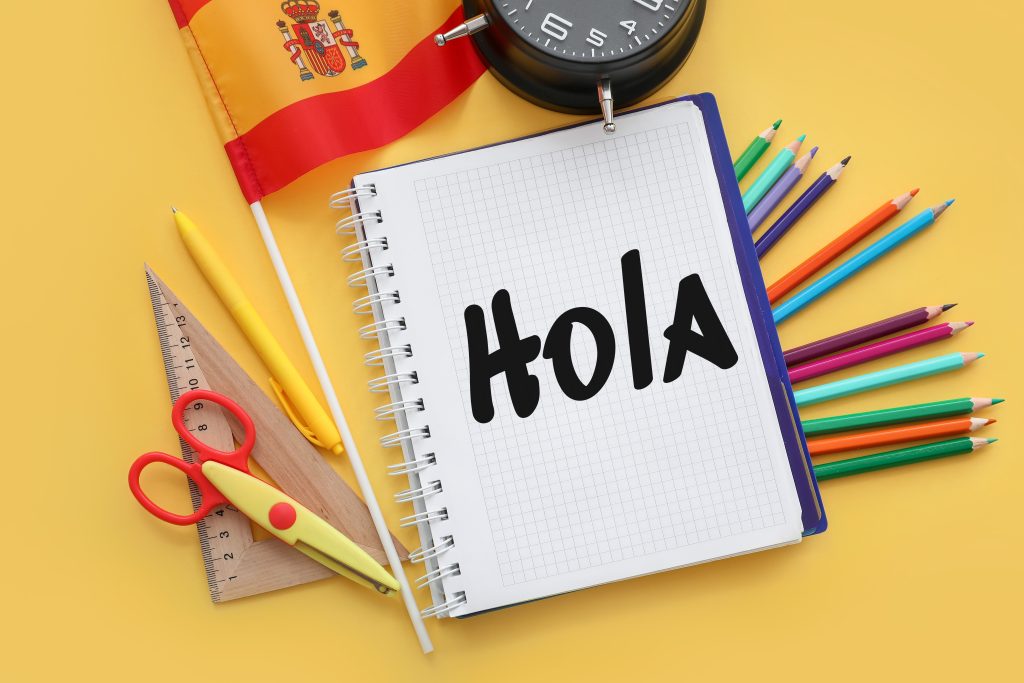
Life Skills
Educating the Mind Without Educating the Heart is No Education at all
Social-Emotional Learning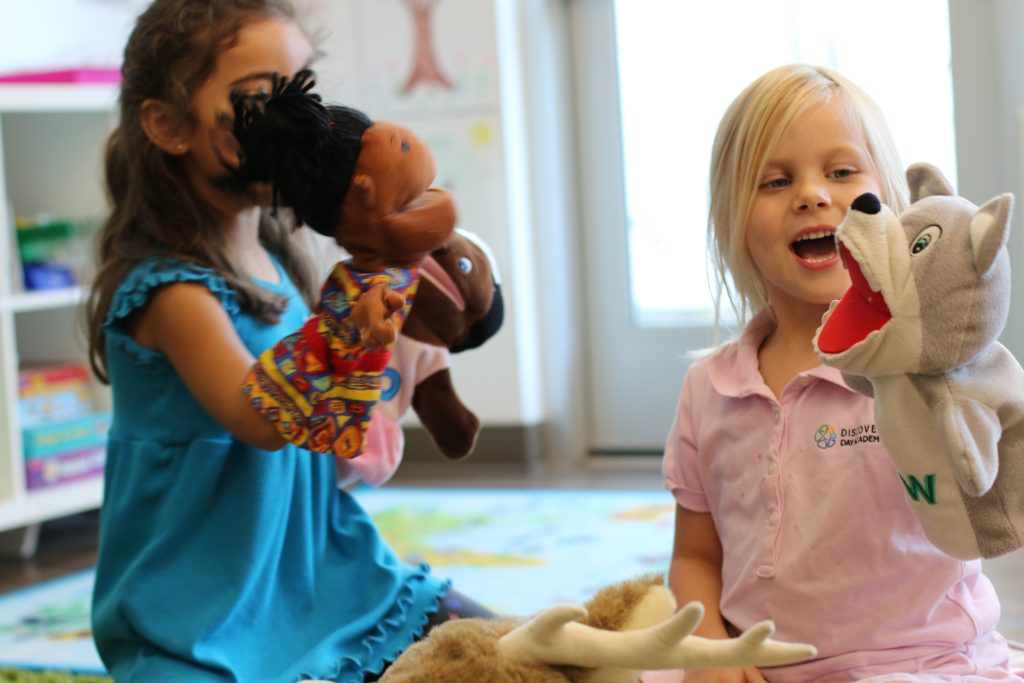
- Students learn the five areas of social-emotional development, and the corresponding skills. This includes self-awareness, self management, responsible decision making, relationship skills, and social awareness.
- Equally, students explore the 21st century literacies, including financial, civic, health, and technological.
- Students learn responsible technology use, including web-safety and typing through key-boarding without tears.
Our Soil-to-Plate Food Philosophy
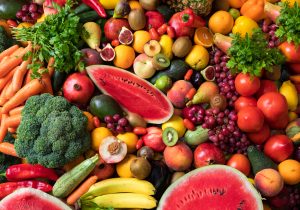
Our school chef prepares meals “from-scratch”, ensuring nutritious meals.
Our school strives to increase the percentage of organic dairy, proteins, fruit, and vegetables within our school meals. This includes snacks and school lunches.
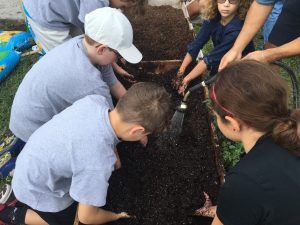
The cultivation of our school garden, and integration into our meals, ensures that children are more likely to try healthy foods. They take great pride and ownership in their gardening success, and build responsibility through this school activity. Fruit trees, vegetable boxes, and herbs are the staples of our culinary garden.
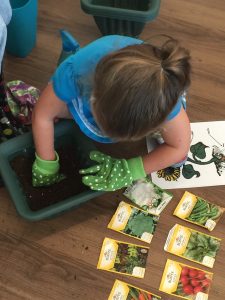
Culinary communication is a core aspect of our program, to increase the home-to-school connection. Pictured menus and a quarterly newsletter provide meal ideas for consistency of healthy meal ideas and options.
The newsletter includes garden updates, percentage of the organic options, new meal introductions and menu rotations.




